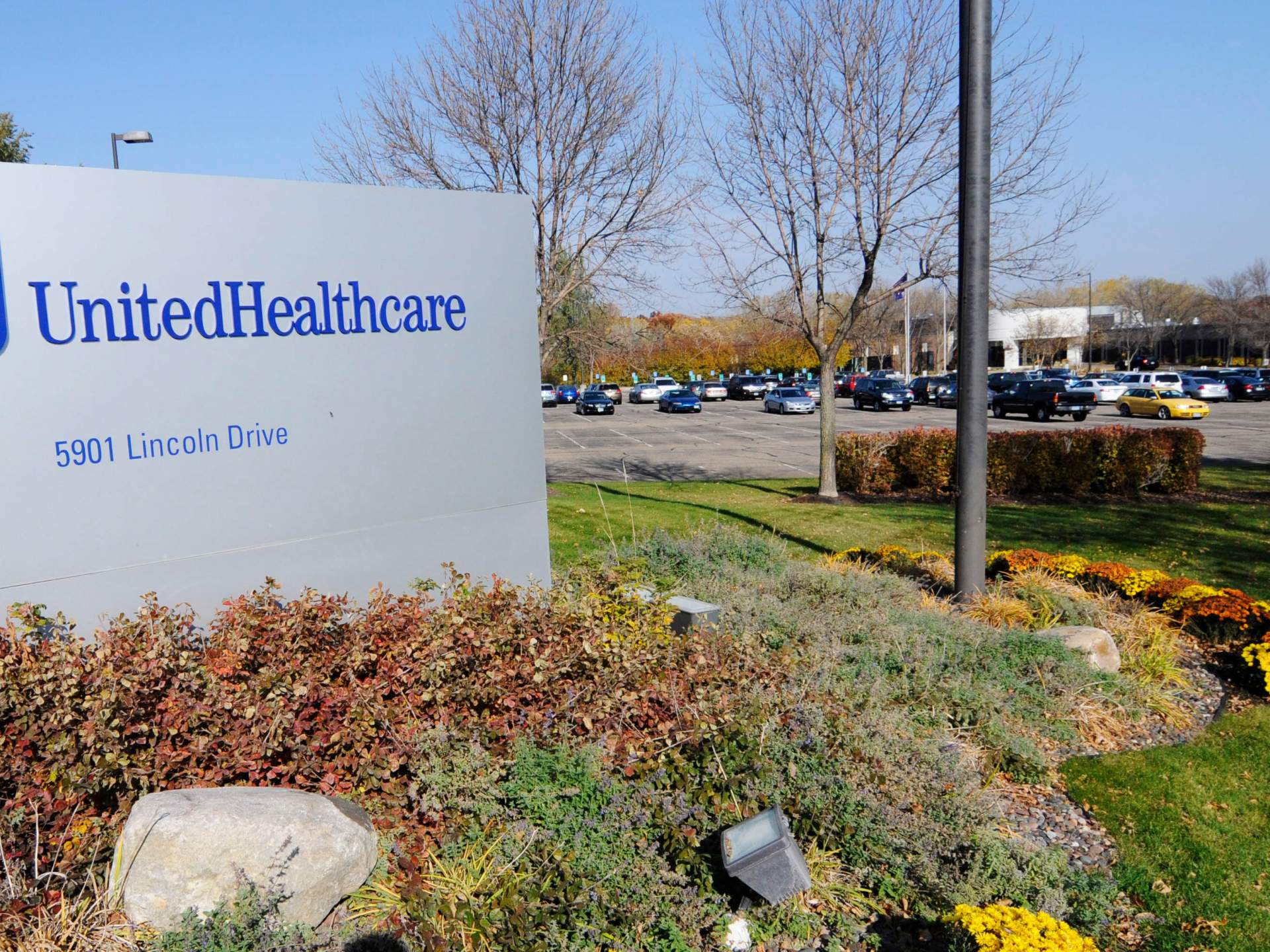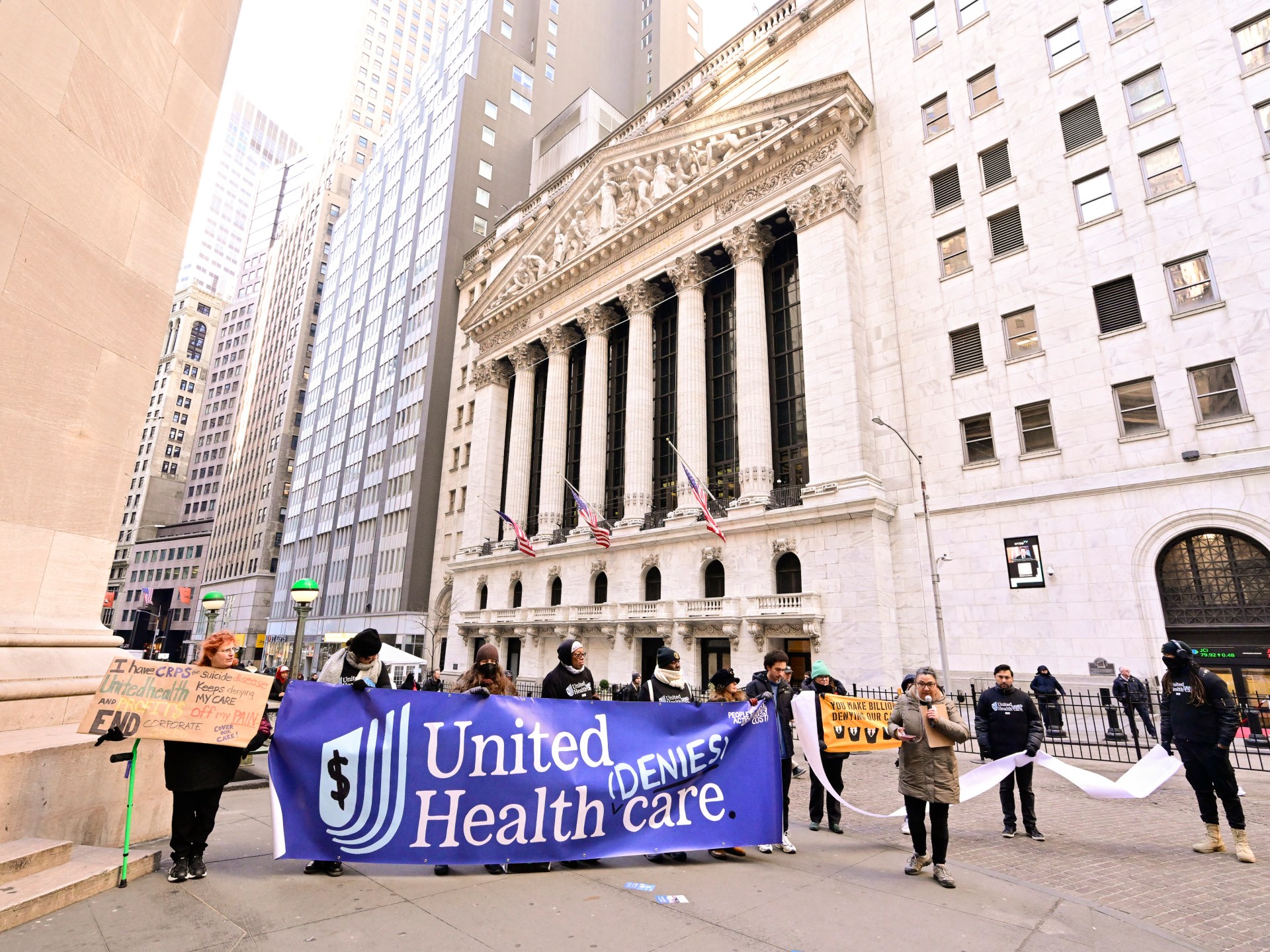Davenport & Company Buys Another $47 Million Worth of UnitedHealth Group (NYSE: UNH) Stock
On October 15, 2025, Davenport & Co LLC disclosed a purchase of 155,551 shares of UnitedHealth Group (UNH) for the period ended Q3 2025, an estimated $47.04 million trade.
What happened
An SEC filing dated October 15, 2025 shows Davenport increased its position in UnitedHealth Group (UNH 0.38%) by 155,551 shares during Q3 2025.
The estimated transaction value, based on the average closing price during the quarter, was approximately $47.04 million.
The post-trade position reached 739,525 shares, with a market value of $255.34 million.
What else to know
Following this buy, UnitedHealth Group accounts for 1.36% of Davenport $18.76 billion in 13F reportable assets
The firm’s top holdings after the filing:
- Brookfield Corp: $583.81 million (3.13% of AUM)
- Microsoft: $478.54 million (2.56% of AUM) as of 2025-09-30
- Amazon: $451.10 million (2.42% of AUM) as of 2025-09-30
- Markel: $391.43 million (2.1% of AUM) as of 2025-09-30
- Nvidia: $375.98 million (2.01% of AUM) as of 2025-09-30
As of October 14, 2025, shares of UnitedHealth Group were priced at $359.93, down 40.6% over the prior year and underperforming the S&P 500 by 53 percentage points over the same period.
Company Overview
| Metric | Value |
|---|---|
| Price (as of market close 2025-10-14) | $359.93 |
| Market Capitalization | $325.98 billion |
| Revenue (TTM) | $422.82 billion |
| Net Income (TTM) | $21.30 billion |
Company Snapshot
UnitedHealth Group:
- Offers health benefit plans, pharmacy care services, healthcare management, and data analytics solutions through segments including UnitedHealthcare and Optum.
- Generates revenue primarily from insurance premiums, healthcare services, and pharmacy benefit management, leveraging scale and integrated platforms.
- Serves national and public sector employers, government programs (Medicare, Medicaid), individuals, and healthcare providers across the United States.
UnitedHealth Group is a leading diversified healthcare company with a broad national footprint and an integrated business model spanning insurance, pharmacy benefits, and healthcare services. The company maintains a competitive edge through its extensive provider networks, data-driven solutions, and ability to serve a wide range of customer segments.
Foolish take
Davenport & Company continued to add to their UnitedHealth position, which now accounts for 1.4% of the firm’s portfolio and is its 9th-largest position.
What makes Davenport’s purchases over the last two quarters noteworthy is that they are essentially doubling down on the company right after its stock sold off heavily.
Hampered by ballooning medical costs, changes in leadership, reduced guidance, and mounting regulatory pressure, UnitedHealth’s stock dropped 39% from its highs in just the last six months.
While UnitedHealth has become a battleground stock of sorts lately, it received a major lift after Warren Buffett’s Berkshire Hathaway disclosed it took a $1.6 billion stake in the stock in the second quarter of 2025.
That is great company for Davenport to join, as it also adds to its stake in UnitedHealth.
Regardless of the headwinds facing UnitedHealth, the company remains one of the most dominant health insurers in the United States.
Currently trading at just 16 times earnings and 13 times free cash flow, the risk-reward ratio on UnitedHealth Group is very appealing.
Glossary
13F reportable AUM: Assets under management that must be disclosed in quarterly SEC Form 13F filings by institutional investment managers.
Quarterly average price: The average price of a security over a specific quarter, used for estimating transaction values.
Post-trade holdings: The total number of shares or value held in a security after a trade is completed.
Top holdings: The largest investments in a fund or portfolio, ranked by market value.
Pharmacy benefit management: Services that manage prescription drug programs for health plans, employers, and government programs.
Integrated platforms: Systems that combine multiple services or business functions into a unified offering.
Provider networks: Groups of healthcare professionals and facilities contracted to deliver services to insurance plan members.
Medicare: A U.S. federal health insurance program for people aged 65 and older, and certain younger individuals with disabilities.
Medicaid: A joint federal and state program in the U.S. providing health coverage to eligible low-income individuals.
TTM: The 12-month period ending with the most recent quarterly report.
Josh Kohn-Lindquist has positions in Nvidia. The Motley Fool has positions in and recommends Amazon, Berkshire Hathaway, Brookfield, Brookfield Corporation, Markel Group, Microsoft, and Nvidia. The Motley Fool recommends UnitedHealth Group and recommends the following options: long January 2026 $395 calls on Microsoft and short January 2026 $405 calls on Microsoft. The Motley Fool has a disclosure policy.






